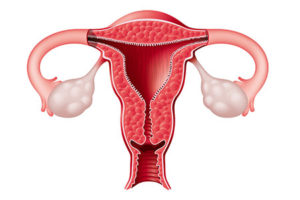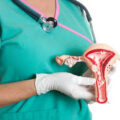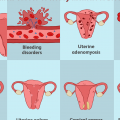A miscarriage, or spontaneous abortion, is an event that results in the loss of a fetus before 20 weeks of pregnancy. It typically happens during the first trimester, or first three months, of the pregnancy.
Miscarriages can happen for a variety of medical reasons, many of which aren’t within a person’s control. But knowing the risk factors, signs, and causes can help you to better understand the event and get any support or treatment you may need.
Types of Miscarriage
There are many different types of miscarriage. Depending on your symptoms and the stage of your pregnancy, your doctor will diagnose your condition as one of the following:
Complete miscarriage: All pregnancy tissues have been expelled from your body.
Incomplete miscarriage: You’ve passed some tissue or placental material, but some still remains in your body.
Missed miscarriage: The embryo dies without your knowledge, and you don’t deliver it.
Threatened miscarriage: Bleeding and cramps point to a possible upcoming miscarriage.
Inevitable miscarriage: The presence of bleeding, cramping, and cervical dilation indicates that a miscarriage is inevitable.
Septic miscarriage: An infection has occurred within your uterus.
How To Clean Uterus After A Miscarriage Naturally
The most important thing to remember is that miscarriages are common and are never your fault, unless of course, you are taking street drugs. Usually, they happen because something wasn’t right with the baby, the uterus implantation site, or hormones. These steps will help to increase your chances of a successful pregnancy the next time around. Here is how to clean uterus after a miscarriage naturally;
Eat High Nutrient Foods
One of the single best things you can do for yourself after miscarriage is to nourish your body with healthy foods. The body will be going through a lot of changes physically, the mind may feel overwhelmed and exhausted and you may be an emotional wreck. Nourishing your body with simple, quick whole foods is vital. Because you may lose more blood than usual, you will want to increase your intake of iron rich foods as well. Think of foods rich in vitamins and minerals; foods that will help support energy levels and body function. Soups, smoothies and stews come to mind. These foods are easy to digest and can be easy to prepare. Plus they are usually filled with a variety of nourishing whole foods. Eat iron rich foods such as bison, chicken, eggs, lean red meat, chicken or turkey, Atlantic wild salmon, pumpkin and sunflower seeds, beans, nettles, raspberry leaf, seaweed, dark leafy greens, beets, lima beans, Brussels sprouts and broccoli, Turkish apricots (unsulphured) and quinoa.
Reduce Stress
Miscarriage brings up a lot of emotions: anger, fear, guilt, sadness and worry. What did I do wrong? Is my body capable? Why did this happen? What can I do to prevent another miscarriage from happening? All of these thoughts racing through your mind can be very stressful. Managing that stress is an essential part of your recovery, especially for your heart. Allow yourself time to heal the pain and longing your mind, body and soul are experiencing. Be selfish, take the time you need to nurture yourself. Make time to reduce stress and promote overall well-being. We are more than our physical bodies, treating yourself holistically is going to greatly improve your chances of healing, so you can move toward a successful, healthy pregnancy.
Fertility Cleansing
Once your period comes back it is fine to begin a Fertility Cleanse. Fertility Cleansing creates a “clean slate” within the body. The specific herbs help to “reset” hormonal balance through liver supporting herbs and specific herbs for the female reproductive system. Fertility Cleansing focuses on liver health and uterine health. Cleansing specifically for fertility is very supportive and encouraging for fertility and the reproductive system. While there are many great cleanses out there, focusing on doing a cleanse specific for fertility is going to be the safest, gentle and most supportive while you are preparing for pregnancy.
If you are still taking herbs for recovery wellness, it is fine to continue them for up to six weeks. If you begin your period in that time, it is fine to continue on with the recovery wellness herbs while also beginning to fertility cleanse. The recommended wait-time for trying to conceive again is usually at least 2 or 3 normal periods after the miscarriage
Try these herbs
There are specific herbs that when combined together may support healthy miscarriage recovery. These herbs focus on supporting healthy circulation to the reproductive organs, so that the miscarriage is complete, anti-inflammatory herbs to help prevent cramping and uterine spasm, so pain is reduced and the uterus can work efficiently. In addition specific herbs help to promote emotional wellbeing, curb heavy bleeding, and promote hormonal balance to help get your cycle back on track. These herbs are best used for up to six weeks after miscarriage has occurred they include;
Angelica: Angelica is an excellent warming herb that increases circulation, dispels cold from the reproductive organs, while supporting the nervous system, promoting relaxation, peaceful thoughts, and reducing anxiety. It is a uterine antispasmodic, supports general weakness and stimulates immune system function. This herb is specific for digestion support, which as discussed in step 1 is vital for miscarriage recovery. All of these actions support vital miscarriage recovery with well-rounded body system stimulation.
Black Cohosh root (Actaea racemosa): Black cohosh is anti-inflammatory and helps to relax the uterus, which reduces uterine pain and spasm in both the smooth muscles. This herb promotes healthy blood flow to the pelvic area, which may be helpful in moving the miscarriage along.
For post-miscarriage recovery, Black cohosh also helps to tone the pelvic floor muscles, through stimulation of mild pelvic floor muscle contraction. As shared by Yale trained MD, midwife and herbalist Aviva Romm in her 2009 thesis, Black cohosh (often in combination with other herbs) has been used for hundreds of years by trained herbalists and midwives to help promote calm, regular uterine contractions. Uterine contractions are important to help prevent retention of pregnancy product post miscarriage, and get the uterus back to its pre-pregnancy state. This herb may help promote regulation of the menstrual cycle, aiding the body in getting the cycle back on track post-miscarriage.
Yarrow leaf/flower (Achillea millefolium): Yarrow promotes circulation, yet is extremely astringent, stopping excessive blood flow. It is an herb of opposites, it promotes sweating and detoxification, but strengthens and tightens tissues. This is excellent for miscarriage recovery. It will help to get the reproductive organs and surrounding tissues ready for your next pregnancy. Yarrow relieves inflammation and congestion of the uterus, which aids in pain reduction. Yarrow is one of the best herbs to curb heavy bleeding. It may help to move the miscarriage along, so you can get back to tending to your life.
Vitex also known as Chaste Tree Berry (Vitex agnus-castus): Vitex has a regulating effect on the hormonal feedback loop, mainly the pituitary gland. This kind of support may help to get your hormones back on track to regulating the menstrual cycle once again.
St. John’s wort flower, upper aerial parts (Hypericum perforatum): St. John’s wort may help to reduce nervous excitement and anxiety. It is a mild sedative that helps to relieve mild depression; aids the body in “lifting the spirit”and also supports prevention of infection and is anti-inflammatory.
Caution: This herb should not be used if you are on antidepressants, neither should it be combined with birth control pills. Some studies have shown it lessens the effects of birth control use. SEE: How To Flush Out Sperm From The Body Naturally






